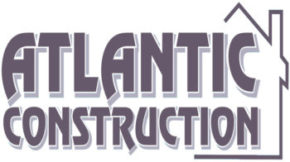1. Visibility:
Online: An established builder will have a website or social media account showcasing previous work, explaining the history of the company and general information.
Signed vehicles: Van Signage, A builder with a van signed in all its glory has nothing to hide.
Directories: You may also find the builder advertises in the Yellow pages or Thomson locals.
Whichever way the builder advertises, its key that as the client you have something to refer to. If your chosen builder has nothing advertised then unless they have been strongly recommended, it would be worth while to request a site visit to view previous work.
2. Accreditations:
FMB, CHAS, Construction Line, Trustmark, EBC etc.
The majority of these companies will go through a rigorous inspection of the builder and the company. Reviewing past work and an interviewing process…a builder can’t just turn up and ask for a sticker.
These companies will vouch for the builder and can assist the client/builder if a dispute occurs.
3. Sub-contractors:
Builders will regularly use approved sub-contractors to carry out specialised works such as Plumbing and Electrical – M&E (Mechanical and Electrical).
These two in particular will need certificates once the work is complete.
– Electrical – NIC EIC certificate.
– Plumbing – Gas Safe certificate.
It would be illegal to use uncertified trades for M&E works because of the high level of risk involved if the job was not done correctly.
4. Contracts & Building control:
Always have an official contract in place for works over 10k. A builder/architect should be able to provide an FMB, JCT or RIBA contract.
This will protect all parties involved if an issue would ever occur.
Unfortunately there’s a negative stigma attached to the building industry, so protect yourself.
The building industry is currently unlicensed, to protect your building and renovation project always ensure Local Authority Building Control (LABC) are involved this will maintain the building is safe, healthy and efficient to meet the standards set by the building regulations from start to finish.
5. Health & Safety & Insurance:
A builder with this in his arsenal not only insures the project, it also means he insures the safety of the staff and the public.
I can’t stress how important this is when choosing your builder. The health and safety basics are below, look out for these.
Health and safety pre-qualification (CHAS), Construction Design and Management (CDM)2015 or any related Health and Safety Executive (HSE) practice i.e. Working at height, manual handling, first aid, tool box talks, etc.
Insurance is extremely important, ask to view the builders policy before work commences.
